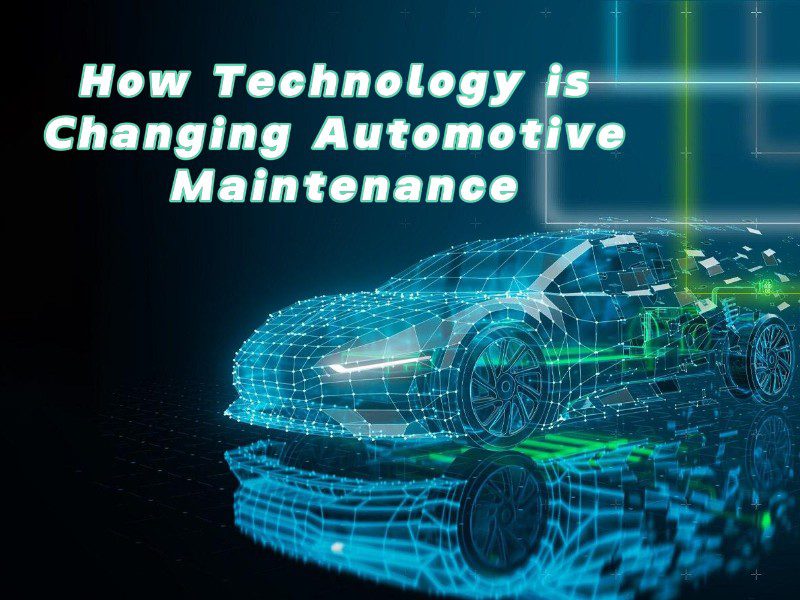Over the years, technology has transformed the automotive industry, setting new standards for repair and maintenance. Mechanics used to be able to get away with reasonably knowing just how things worked, being able to pull the engine apart on a bench with commonly owned tools — those days are long over.

Today’s cars house intricate electronic systems, sensors and software — all of which require special tools and training to service. This change has transformed the necessary skill set in automotive repair by emphasizing the need for tech-enabled diagnostics and repair tools expertise. In this article, we examine the role of technology in automotive repair and evolution — what it means for your future as a technician.
Transition from Conventional to Tech Enabled Automotive Repairs
Well the old school methods are being replaced with high tech solutions at a rapid pace. Modern automobiles utilize sophisticated computerized systems onboard, monitoring and controlling nearly every facet of a vehicle’s functioning — from fuel economy to anti-lock brakes. This has complicated diagnostics and repair even further, making use of OBD-II (On-Board Diagnostics) scanners, digital oscilloscopes, and AI diagnostics tools. These advancements allow technicians to identify problems faster and more accurately than ever, resulting in reduced time or money spent.
For instance, a mechanic would only need to plug the OBD-II scanner and it will diagnose all problems related to engine performance, emissions or electrical systems instead of going through each component one by one. In a similar fashion, software with VPN support makes remote diagnostics possible so that technicians can read your car’s diagnostic information from anywhere where there is an access to the internet. This shift requires technicians to be well versed in digital literacy skills with the new and advanced software-type troubleshooting which is a departure from the former mechanical approach.
The Growing Demand for Technically Trained Experts in a Hi-tech Setting
As these new tools get integrated into the industry, competent technicians who can deal with old mechanical skills, as well as their modern technological integration, are in urgent need. In essence, vehicles could be described as “computers on wheels,” and their repair encompasses knowledge of mechanics, electronics, and computer science. With increasing difficulty in recruitment of qualified technicians, the job has gradually encompassed many aspects.

Recruitment agencies, therefore, take over the need to fill this demand through sourcing technologically savvy professionals who, besides being familiar with standard repair processes, are also comfortable with using technology in diagnostics. These agencies play an important connecting role between businesses and technicians that are up-to-date with the latest tools and methodologies regarding automotive repair. To technicians, this means a brighter future in an industry which is continuously evolving to include more jobs with a technological focus.
The Significance of Training and Upskilling During an Automotive Career
There is quite an increasing demand for constant upskilling and training in an automotive repair environment today. As a fact, specialists with computer programming-even troubleshooting in software-data analysis knowledge remain amongst highly sought-after professionals.
The shift in the kinds of skills that are required for automotive repairs has not been any different from what has happened to other industries based on technology, such as development of software.
An example could be a mern stack developer resume, showing experience in programming and management of technology to identify a trend in which the digital know-how has gained paramount importance across a wide array of industries. To an auto technician, the difference will be between a nine-to-five classic job and a high-demand specialist in electric cars, hybrid engines, and digital diagnostic tools.
More and more money has recently been put into training programs by automotive repair centers and dealerships to help their technicians adapt with the newer tools and technologies. Others take further steps by partnering with educational facilities that offer hands-on training in automotive technology, preparing new entrants for current market demand.
Careers Opportunities in Automotive Tech Repair
The introduction of technology in auto repair has opened new avenues of employment. Hybrid/electric vehicle technician, software diagnostics specialist, and similar others are all jobs in demand and promise job security with chances of advancement. The more technologically savvy an automotive technician is, the greater his possibilities of landing specialized jobs, which makes him a key asset for any repair shop, dealership, or service center.
Recruitment agencies connect these tech-savvy automotive technicians with the employers seeking talent trained in advanced diagnostic tools and digital systems. This is an alignment from which both technicians and companies benefit, where the technicians get an opportunity to work on challenging yet rewarding jobs, and the companies also get their aim of having working personnel who know about the latest advancements in automotive technology.
Conclusion
Technology continues to reshape the face of automotive repair and maintenance, ushering in new tools and diagnostics that require sophisticated training and technical expertise. Skilled recruitment is, therefore, very important in finding technicians fitted for this high-tech landscape, as the industry moves away from conventional methods. Recruitment agencies such as it staffing agencies Chicago have played an important role in identification and placement to ensure that the industry can move at the fast pace of change.
This shift offers the technician an opportunity to upskill and move upwards into their career. Welcome these changes, and it ushers in a future where their technical acumen and the ability to adapt to the changing technologies are in high demand in an evolving world of automotive repair.





